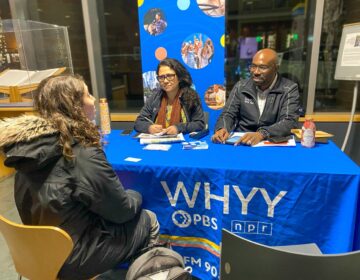What’s in a street name?
The street signs in East Falls are directional guides that help us to navigate from point A to point B. Street signs give our roads order and continuity. There are thousands of them scattered around our city. But where do all of those names come from? What is the story behind those names? Our neighborhood’s corners are decorated with little clues about Philadelphia’s past.
Vaux Street runs over Midvale Avenue and through East Falls. But who were the Vauxes?
The Vaux family has a rich history in Philadelphia, dating back to the end of the 18th Century. Richard Vaux, the son of a Quaker family from London, immigrated to Philadelphia in 1768 and worked at Samuel Samson’s mercantile firm.
By 1771, Richard’s brother James also traveled to Philadelphia. James established a 300-acre farm named Vaux Hill in Valley Forge. It is recorded that Vaux Hill was occupied during the Battle of Brandywine and that George Washington spent a night at the farm during the battle. Politically, James aligned himself with the Patriot cause during the American Revolution and Richard was a British Loyalist. Richard returned to England after being jailed for singing God Save the King publicly in 1777.
In 1783, Richard returned to the states to reunite with his future wife, Ann and to re-establish his mercantile business. Richard died in 1790, leaving Ann to raise her two young children, Roberts and Susanna, on her own. Raised in the Quaker faith, the children were instilled with a sense of service and tolerance. By 1814, both Ann and Susanna had died.
Roberts spent a short time in the mercantile business, but ultimately became one of the noted philanthropists of his time. Roberts championed many causes including educational reform, penal reform, the abolishment of slavery and the rights of Native Americans. Roberts became a civic leader in Philadelphia and was recognized internationally for his work in education reform.
Roberts and his wife Margaret Wistar, had two sons, Richard and Thomas. Richard Vaux became an active member of the Democratic Party and was elected mayor of Philadelphia in 1856. Richard also maintained his father’s legacy of philanthropic work by advocating penal reform.
The Vaux family legacy is preserved in correspondence and photos are available through the Historical Society of Pennsylvania.
WHYY is your source for fact-based, in-depth journalism and information. As a nonprofit organization, we rely on financial support from readers like you. Please give today.






